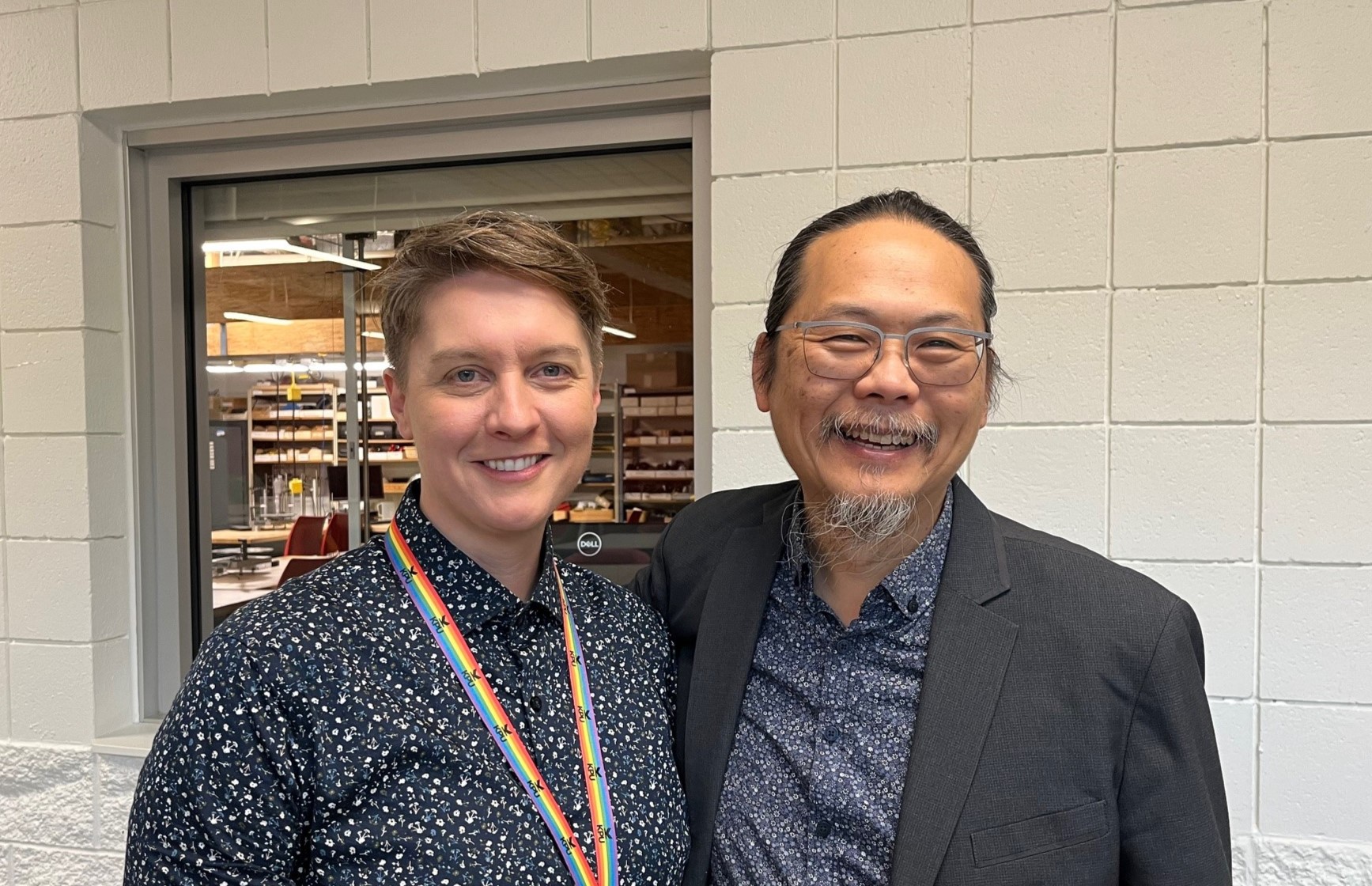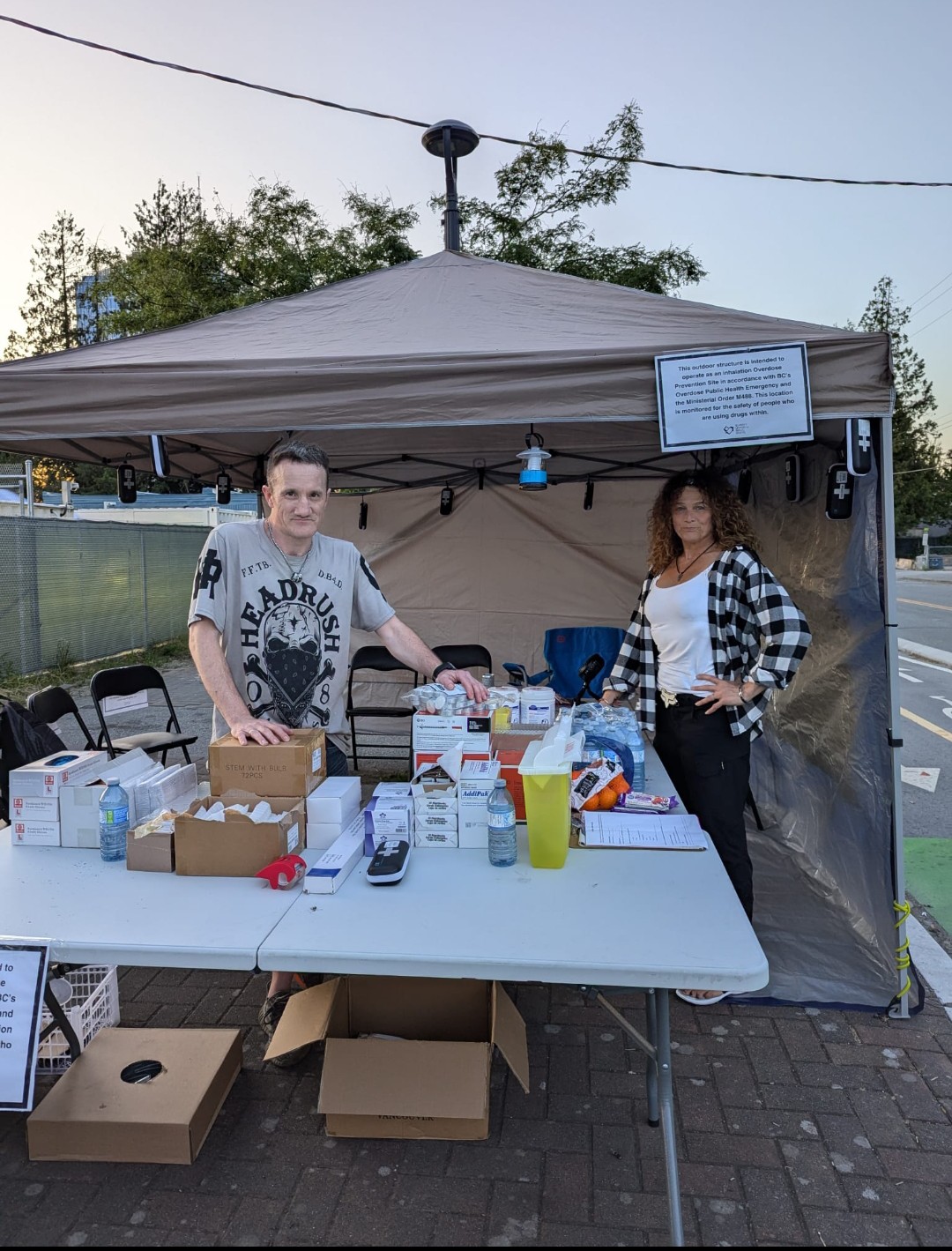A community-led research project is mapping the Surrey drug crisis with a $339,159 College and Community Social Innovation Fund grant from the Canadian Institutes of Health Research.
Researchers Dr. Michael Ma and Dr. Tara Lyons, who teaches criminology at Kwantlen Polytechnic University, are working closely with the Surrey Union of Drug Users (SUDU) to address the lack of specific research on Surrey’s toxic drug supply crisis, harm reduction and the regulation of people who use drugs.

Recent data from the B.C. Coroners Service reveals Surrey had the second highest number of toxic drug overdose deaths in B.C. for the first nine months of 2024.
"Surrey's losing more and more people to toxic drug overdoses, with at least four to five people dying every week,” says Gina Egilson, a board member at SUDU. “There's a deep urgency to improve the system through more support and resources in Surrey. This research will be an empowering skill-building opportunity that will help guide SUDU's advocacy."
In an article for Oxford University Press’s Community Development Journal, Dr. Ma says that although most overdoses have taken place in Vancouver, Surrey and Victoria in recent years, a majority of the research has focused on Vancouver’s Downtown Eastside.
“For too many years there hasn't been enough focus on the escalating drug crisis in Surrey,” says Dr. Ma, a sociology professor at the University of Victoria. “So we want to try to build more capacity and support in Surrey through resources, funding and infrastructure.”
The goal of the project is to provide contextual and cultural data on the lived experiences of the research team and study participants in an effort to address the multi-layered and nuanced issue in a way that reflects the realities of impacted individuals.
The instructors are drawing on the participatory action research method, which means people with lived and living experience of substance use take an active role as participants and collaborators in the research.
“We don’t see people as objects of study in the work we're doing,” says Dr. Lyons. “They're experts who are guiding the kind of questions we're going to ask and how we will communicate the information.”
“I've never seen this kind of collaboration between people of lived experience and established researchers,” says Pete Woodrow, a board member at SUDU. “It not only creates a bridge of understanding between two groups that would not normally have contact, it also gives us an opportunity to gain a greater handle on where services are most needed. So often the intent of help falls short or misses the mark due to the lack of a proper map of marginalized population.”

Dr. Ma says this project doesn’t assume a traditional research structure, but is rather rooted in advocacy.
“This research is just not for pure scholarly academic reasons. It’s a community development project that has a research component. It can be leveraged for social action to generate new social, economic and political policy that could benefit people who are suffering, being misunderstood or being under researched.”
College and Community Social Innovation Fund grants are intended to foster community innovation by connecting the talent, facilities and capabilities of Canada’s colleges and polytechnics with the research needs of community organizations.